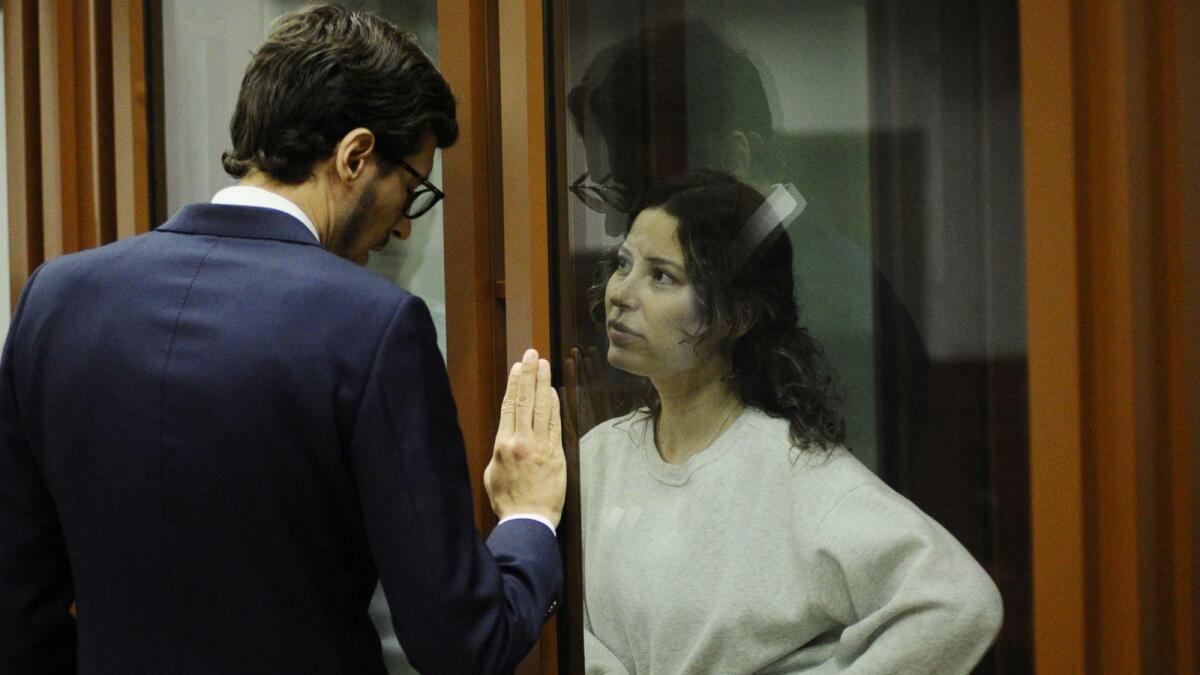Ksenia Karelina, a dual Russian-American citizen from Los Angeles, has been sentenced to 12 years in prison in Russia for donating money to a charity that supports Ukraine. She pleaded guilty at a closed trial in Yekaterinburg and was accused of transferring funds to a Ukrainian organization for the purchase of military items by the Ukrainian Armed Forces. However, her supporters claim she only donated $51.80 to a charity that provides humanitarian aid to Ukraine and does not support any military activities in Kyiv.
Karelina, 33, appeared in court wearing a white sweatshirt and blue jeans, hoping to be included in a future prisoner exchange between Russia and the West. She emigrated to the US in 2012 and received American citizenship in 2021, but was arrested during a visit to Russia where authorities found the donation on her Venmo account. She was interrogated and banned from leaving the city before being arrested on hooliganism charges and hit with a state treason charge just before her planned return to Los Angeles.
Her family and friends in the US have described Karelina as apolitical and were shocked by her arrest. Her boyfriend has been in contact with the State Department and US embassy in Moscow to secure her release, but unlike other wrongfully detained Americans who were recently released, Karelina has not been given that designation to help facilitate diplomatic negotiations for her release.
The case of Ksenia Karelina is another instance of Russia cracking down on individuals with ties to the West, with little hope for acquittal due to the country’s legal system. The dual citizen’s situation highlights the increasing tensions between Russia and the US, with repercussions affecting ordinary citizens caught in the crossfire. Karelina’s sentencing comes as part of a wider crackdown on dissenting voices and those perceived as being disloyal to the Russian government.
The international community has reacted to Karelina’s case with concern, calling for her release and criticizing Russia’s harsh punishment for a seemingly minor offense. The impact of Karelina’s sentencing goes beyond her personal situation, as it sends a chilling message to Russian citizens with connections to the US or other Western countries. Her case raises questions about the limits of freedom of expression in Russia and the risks faced by those who express support for causes that are at odds with the Russian government’s policies.
As Karelina begins her prison sentence, the spotlight is on Russia’s treatment of dual citizens and individuals with ties to the West. The lack of transparency in the legal process and the severe sentencing for what many see as a charitable donation signal a concerning trend in Russia’s approach to dissent and foreign connections. The future of Karelina remains uncertain, but her case serves as a stark reminder of the challenges faced by individuals caught in political crossfires between Russia and Western nations.










